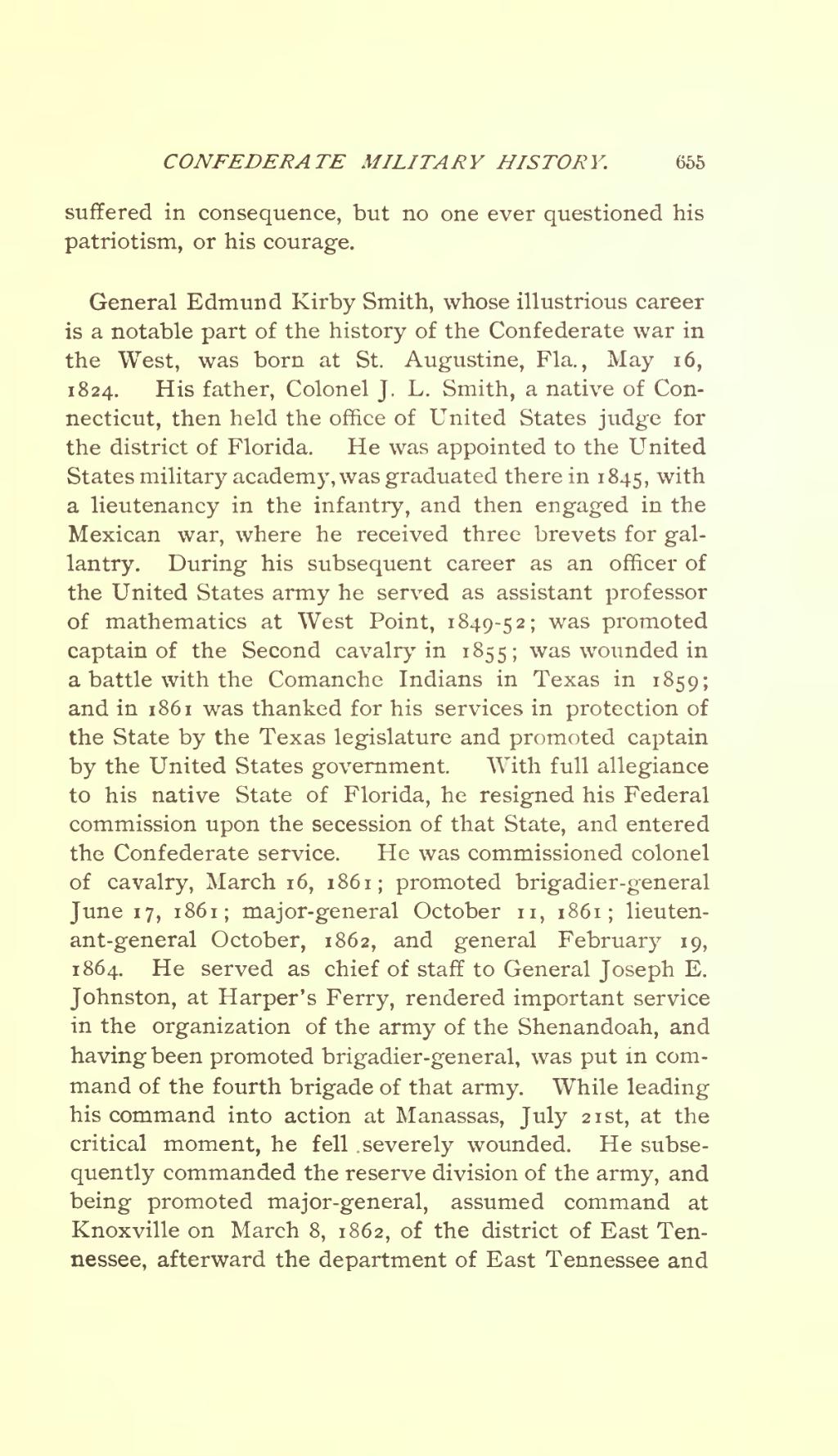suffered in consequence, but no one ever questioned his patriotism, or his courage.
General Edmund Kirby Smith, whose illustrious career is a notable part of the history of the Confederate war in the West, was born at St. Augustine, Fla., May 16, 1824. His father, Colonel J. L. Smith, a native of Connecticut, then held the office of United States judge for the district of Florida. He was appointed to the United States military academy, was graduated there in 1845, with a lieutenancy in the infantry, and then engaged in the Mexican war, where he received three brevets for gallantry. During his subsequent career as an officer of the United States army he served as assistant professor of mathematics at West Point, 1849-52; was promoted captain of the Second cavalry in 1855; was wounded in a battle with the Comanche Indians in Texas in 1859; and in 1861 was thanked for his services in protection of the State by the Texas legislature and promoted captain by the United States government. With full allegiance to his native State of Florida, he resigned his Federal commission upon the secession of that State, and entered the Confederate service. He was commissioned colonel of cavalry, March 16, 1861; promoted brigadier-general June 17, 1861; major-general October 11, 1861; lieutenant-general October, 1862, and general February 19, 1864. He served as chief of staff to General Joseph E. Johnston, at Harper's Ferry, rendered important service in the organization of the army of the Shenandoah, and having been promoted brigadier-general, was put in command of the fourth brigade of that army. While leading his command into action at Manassas, July 21st, at the critical moment, he fell severely wounded. He subsequently commanded the reserve division of the army, and being promoted major-general, assumed command at Knoxville on March 8, 1862, of the district of East Tennessee, afterward the department of East Tennessee and

